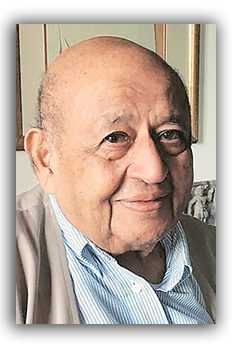A doyen of Indian foreign policy and a career diplomat, Katyayani Shankar Bajpai (b.1928-d.2020), popularly known as K. Shankar Bajpai, was born on 30 March 1928 in Jaipur Rajasthan, into a family of diplomats. His father Girija Shankar Bajpai was a senior diplomat in pre - and post - independent India and his brothers, Uma Shankar and Durga Shankar, too were diplomats.
After being educated at Washington, Oxford and Geneva, Bajpai went on to join the Indian Foreign Service in 1952. During his distinguished career, he played a key role in a long string of events: he had stints in Turkey (1958); served as a political officer in Pakistan during the 1965 war; accompanied then-Prime Minister Lal Bahadur Shastri to Tashkent for the summit with Pakistan’s President Ayub Khan in 1966; served as India’s representative in Sikkim, 1970-74, and played a major role in its integration with the Indian union. He was one of the few diplomats to have served as the envoy to Pakistan (1976-1980), China (1980-1982) and the USA (1984-1986). Over the years, he also had postings in Bonn, Ankara, Bern, San Francisco and the Netherlands. During his years in Delhi, he focussed on Arab affairs, the UN and disarmament.
Post-retirement in 1986, Bajpai transitioned into academic life and minced his words as a columnist. He started teaching full time at the University of California, Los Angeles, 1987-88, and went on to become a Visiting Faculty at the University of California, Berkeley, 1989-1992. He was the first professor of non-Western studies at Brandeis University, Waltham, MA, USA, 1992-1993. He set up the Delhi Policy Group, an independent think-tank in 1994. Bajpai edited a volume on the two largest democracies, Democracy and Diversity: India and the American Experience (2006).
He served as Chairman to National Security Advisory Board, 2008-2010. A great believer in Track II diplomacy, he was informally consulted by the government, particularly for relations with the US. He was involved in Indo-US track II initiatives launched by Ananta Apsen Centre, a leading convening body based in New Delhi.
Bajpai passed away in 2020 due COVID. At the time of his death, he was working on a biography of his father and his memoirs.
About the collection: The papers of K.S. Bajpai cover the period, 1946-2018. The collection comprises notes, letters, booklets, articles and press clippings on Indo-Pak talks, Tashkent Summit (1966), and Sikkim (1970s). There are papers related to his tenure as High Commissioner to Pakistan (1976-1980), Ambassador to China (1980-1982) and to the US (1984-1986). Correspondence with national and international dignitaries forms a part of the collection. There are also post retirement papers: his stint at the University of California, Berkeley as a Visiting Faculty; as an Advisor at Merrill Lynch, New York; and notes/articles on Delhi Policy Group. There is a plethora of his writings, both handwritten and published on India’s foreign policy. The collection is particularly informative for the research community interested in the history of international relations, diplomacy & security studies.
Donor: Mrs. Meera Bajpai
Acquisition: 2023



